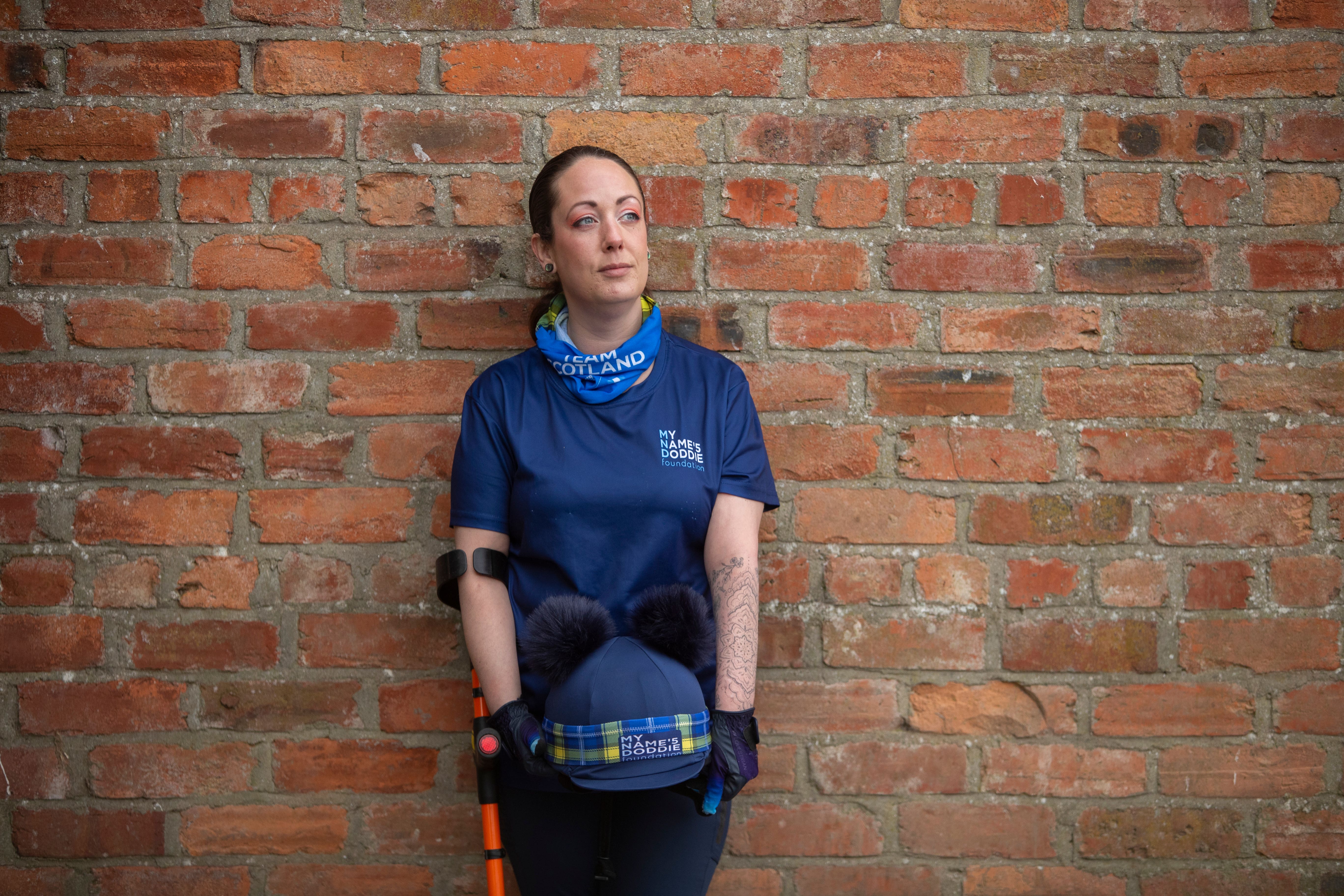Nurse recalls attending MND lecture unaware she already had the disease
Sheree Gregg was diagnosed in 2019 aged just 28.

A nurse who was forced to retire after being diagnosed with motor neurone disease (MND) has recalled attending a lecture on the condition unaware she already had it.
Sheree Gregg, from Inverness, was 28 when she was diagnosed in 2019, making her the youngest person in the Highlands with the condition and one of the youngest across Scotland.
The illness ended her nursing career, her role as a guitarist in a band, and prevented her from travelling the world.
Ms Gregg, now 34, originally had no idea she had MND, and says she was in denial when she started noticing symptoms while at university.
It felt surreal, like the lecturer was describing exactly what was happening to me, but I couldn’t bring myself to say anything
She said: “I remember sitting in the front row during that lecture. My left arm was already weak, and my muscles were twitching.
“It felt surreal, like the lecturer was describing exactly what was happening to me, but I couldn’t bring myself to say anything.
“I spent hours in the library, looking up symptoms in medical journals, and MND kept appearing. But I ignored it. I didn’t want it to be true.
“Knowing the science behind MND gave me a clear picture of what was happening to my body.
“But that didn’t make it easier. Learning about a disease in theory is very different from living with it.”
MND is diagnosed in six people each day in the UK, and the life expectancy upon diagnosis is two to three years.
Ms Gregg played in a punk band when her symptoms began, and she noticed her left hand could not move fast enough to keep up with the music.
She said: “Music was a huge part of who I was.
“I’d played live since the age of 15, and I loved performing, the energy of being on stage, and the connection with the audience. Giving it up was heartbreaking, but I had no choice.”
She had to give up driving two-and-a-half years ago, now relying on her mother Linda, 62, a retired nurse who is now her carer, and her father Jim, 63, who still works as a full-time plant operator.
Ms Gregg said: “My diagnosis made me feel like I was failing at my job, and that was devastating because nursing was my passion.
“Losing my ability to drive took away a big part of my freedom. It’s difficult to explain just how much that impacts your life. It’s the small things you lose – cooking, cleaning, washing, things everybody may take for granted.
“My parents have been amazing, but it’s hard for them.”
Despite living with MND, Ms Gregg completed a 10K at Loch Ness this year, and still enjoys video games as the charity My Name’5 Doddie Foundation gave her a grant which allowed her to adapt her controllers.
She also enjoys horse riding and finds her weekly lessons therapeutic.
She said: “Horse riding has been a real turning point.
“It’s my happy place every week. It’s helped me regain some muscle strength, improve my posture, and feel a sense of freedom I thought I’d lost.
“The horse is essentially my legs – it can run when I can’t. It’s therapeutic and gives me a sense of progress and accomplishment.
“I have a slow progressing form of MND, and doctors have said my horse riding is helping me live better with it.”
Ms Gregg shared her story ahead of Doddie Aid 2025, crediting the charity for helping her to turn her life around despite her diagnosis.
Doddie Aid was set up in 2021 to raise funds for the My Name’5 Doddie Foundation, the charity founded by the late Scotland and Lions rugby player Doddie Weir following his diagnosis with MND in 2016.
The annual exercise challenge, which begins on January 1 and runs for five weeks, was started by Weir’s 1997 Lions team-mate Rob Wainwright and has so far raised £5 million for research into a disease that will affect one in 300 people during their lifetime.
Ms Gregg said: “Organisations like MND Scotland and My Name’5 Doddie Foundation have been a lifeline.
“They provide grants, support groups, and take so much stress off our shoulders.
“I didn’t know much about Doddie Weir before my diagnosis, but I’ve come to appreciate what an incredible man he was.
“He raised so much awareness and funding for MND research. I wish I’d had the chance to meet him.
“I’ve gone through the grief cycle many times, and only recently have been able to accept my diagnosis.
“I’ve met so many wonderful people in the MND community, but losing them is incredibly hard. Many fought tirelessly to raise awareness and funds.
“We need more research and more funding to find a cure. Doddie Aid 2025 is the perfect opportunity for everyone to contribute.
“There isn’t much that can be done following an MND diagnosis right now, but that will change. There is hope, and it’s up to all of us to make that hope a reality.”
To sign up for Doddie Aid 2025, visit doddieaid.com.
Bookmark popover
Removed from bookmarks